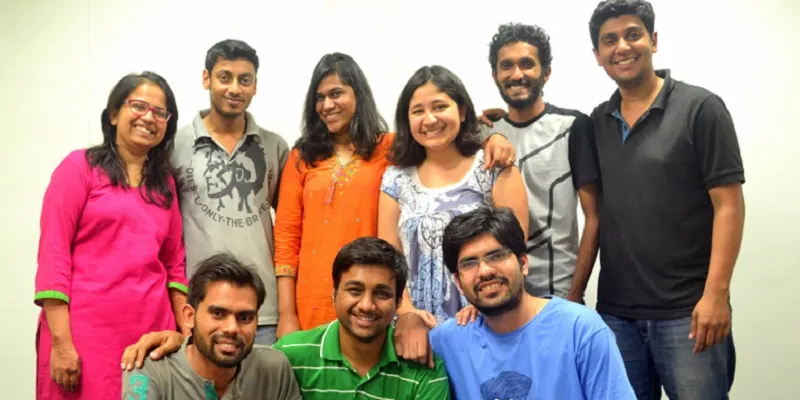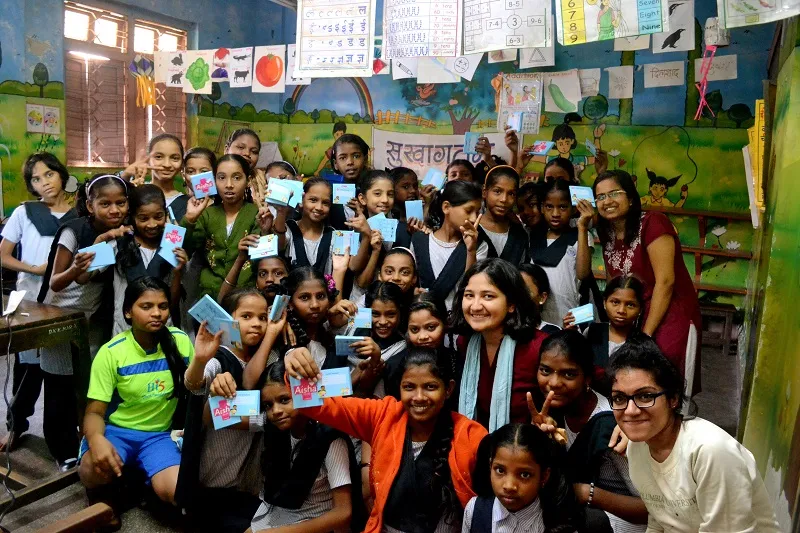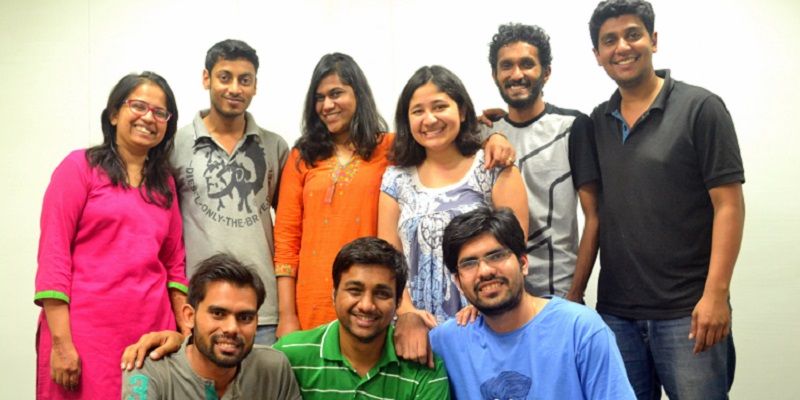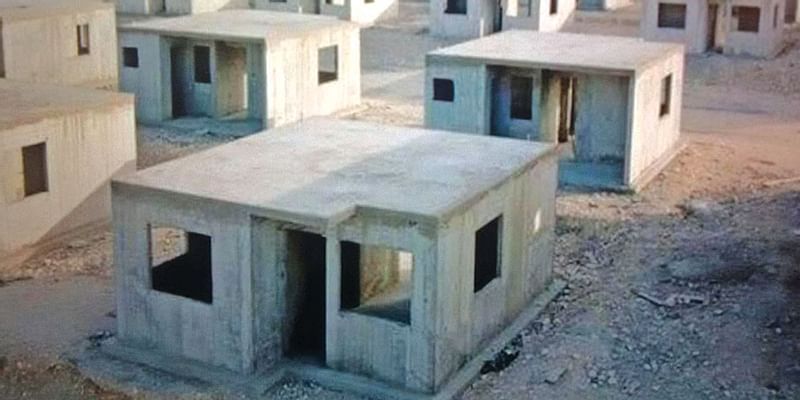How these IIT alumni built a decentralised manufacturing unit to help rural women get access to affordable sanitary pads
The first time I started menstruating, there already was a stock of sanitary napkins and tampons available at home. There also was enough prior knowledge given to me on menstruation, the bodily changes that would take place and the hygiene requirements I would need to deal with. I distinctly remember being appalled after listening to the stories of my older aunts using cloth and rags.
Living in a bubble, I believed that sanitary napkins at least (if not cups or tampons) are used across the country. But the reality is glaringly different. Even today, women in rural India use rags, newspapers and other unhygienic material during their periods, which in turn leads to reproductive tract infections.

Suhani Mohan, Founder of Saral Design, too lived in a bubble like me. She says till the time she met Anshu Gupta, Founder of Goonj, and Magsasay Award winner, she didn’t realise the extent of disparity in the society.
“It had never crossed my mind to wonder when I spend Rs.100 per month to manage my period, how a woman, whose entire family’s earning is less than Rs.1000 per month, could manage hers,” says 25-year-old Suhani.
When she spoke to her friend Kartik Mehta, the duo joined hands and started exploring the low-cost sanitary napkin industry. They realised that most of these units were running into cash-flow issues due to insufficient scale and lack of demand for the poor product quality. There was a gap, and hence an opportunity.
Suhani was working for Deustche Bank and Kartik had worked on machine design and development for three years with General Motors and Neubauplan Design Studio. As Kartik was also looking to work on more challenging products that could impact a large number of people, the duo started Saral Designs in June 2015.
Finding the solution
Saral Design Solutions Private Limited is a for-profit social enterprise focussed on designing products to provide access to affordable and quality menstrual hygiene in India.
The team has developed a machine to manufacture high-quality sanitary napkins – Aisha pads – in a decentralised manner. Decentralisation helps lower the costs incurred typically due to several layers of distribution. Aisha pads are being made available to girls who lack access, via various channels like medical shops, door-to-door sales and installation of vending machines in their schools toilets along with hygiene awareness.

“When we started up, the challenge was that the product development takes a lot of time. Without a product, it is difficult to raise funds and build a team. We were lucky to be able to attract some really talented people early on, who were instrumental for our product development,” adds Suhani.
Breaking through barriers
Hiring too was a challenge when there was no product and no money. The duo’s friends would informally help them with a few things like researching on raw material suppliers and going on field visits. “The first two people to join our team were Vijay and Kalyani, who were recommended by people in our network,” says Suhani.
They worked in a workshop and in summers it would get really hot, so their friends and alumni from IIT Bombay donated their old furniture, stationery and even an AC to get them by in the early days. To build a strong product team, the duo looked out for colleges that had strong participation in competitions like BAJA/F1 car racing. In them, they found some talented and hands-on mechanical engineers who had an eager desire to learn and build something meaningful.
What did the market say?
The duo launched their product in December 2015, confined to Dharavi, Mumbai. They have already sold 1,500 packets and tied up with 60 medical shops in the area.
Speaking about other sanitary napkins available in the market, Suhani says:
- Multinationals produce high-quality pads centrally but have several levels of distribution, which increase the cost of the pad by 40 percent
- Local players have made pads affordable. But economically-backward women have a great sense of value for money and do not want to spend on a poor quality product.
The team recently raised a seed round of funding from Farooq Adam, Founder, Fynd.
“I found the problem Saral is addressing really pressing. At the same time, with more women entering the workforce across income segments, menstrual hygiene products will see a surge in the market. The team has the right blend of passion, technical expertise and hands-on experience in building products, which gives them an edge to tap the opportunity,” Farooq says.
Tackling the problem
Saral tackles menstrual hygiene using three As:
Affordability: To bring the price down, the startup has developed a manufacturing machine that will allow decentralised production at the same level of quality and performance as international brands.
Awareness: The most powerful channel to create awareness among bottom-of-the-pyramid customers is through word of mouth. Apart from the traditional channels of distribution via retail, Saral has implemented localised women-only distribution.
Access: Meaningful access to feminine products is about convenience, and also about privacy. Apart from alternative distribution methods, the key innovation the startup has made is installing vending machines, designed in-house, in restrooms in schools and urban slums.
Decentralisation cuts down several middlemen in the process of distribution. Additionally, these units are replicable and can be set up at costs less than Rs 10 lakh, making scaling to different geographies easy. Saral’s pads are called Aisha Ultra XL, which are ultra-thin pads with wings and with gel technology. A packet costs Rs 24.
On future plans, Suhani says, “In the short term, we want to make further developments in the product to make it easier to use and dispose of, optimise distribution channels to reach different geographies in a cost-effective manner. The long-term objective is to provide every adolescent girl with cost-effective lasting hygiene solutions and help them embrace their womanhood with dignity.”











